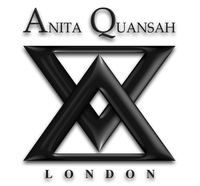
Nzu known to the Igbo people of South Eastern Nigeria is a white clay that is excavated from the clay soil. This white clay is also known as Kaolin as well as Calabash Chalk. It is known as Orhue by the Edos, and Efun by the Yorubas
The Ìgbòs believe that the earth (ani) is the root of every creation. This is why the Ìgbòs, pray and bless the earth with Nzu whilst making reverence to Mmuo Ani/ Mother Earth.
This sacred chalk is used in multiple ways. In Omenala (Cultural practice) and Odinala (Spiritual Practice), we use Nzu as a spiritual sacramental when uttering prayers to invoke Chukwu Okike (The Supreme Creator). We also use Nzu as an offering to the deities and as a medium to channel, communicate, and connect with the ancestors.
In many parts of Ìgbò land, when guests visit every home, communal space and traditional chambers, known as the 'Obi’ they are welcomed formally with kola nut, water, food and nzu.
The offering of Nzu when welcoming guests/visitors signifies peace.
During traditional hospitality gatherings and after prayers, to Chukwu (the supreme God), Nne Ala, (Mother Earth), the spiritual guides and the ancestors, the chalk will be rolled across the ground from the feet of one person to the next in order of seniority or social ranking.
Once received each person will then draw four lines known as (Oguama) on the ground, (Ani) representing four deities or Igbo market days. 'Eke’ Fire, 'Oye’ Water, 'Afo’ Earth and then 'Nkwo’ Air.

All the Ozo title holders and high-ranking chiefs are entitled to draw eight lines. Before rolling the nzu to the next person, each will take a small piece of chalk and mark one of their feet, or their eyelid or wrist. This process is known as Itu nzu/Ima nzu. This performance is done in good faith, to reassure all persons and visitors of each other’s good hearts and intentions.
Nzu is never given from hand to hand. Passing Nzu to someone means you testify for their innocence. We leave Mmuo Ani, as the judge, to decide if the person is clean or not. That’s why it is said in Igbo land “Aka mara nzu adịghị ama unyi”, meaning any hand that touches Nzu doesn’t touch (do) evil.
Just like many religious doctrines use various items to channel their prayers, in Igbo land we use this traditional chalk to pray to call on the Gods and our intercessors.

In the olden days, pregnant women applied this grounded sacred chalk mixed with water to form a paste to their bodies, to protect themselves and their unborn children from skin rashes, witches, and wizards. They even ingest it as a medicine for various pregnancy illnesses.
Nzu around the eyes signifies an ability to see beyond the visible world and into the world of the spirits. When drawn or smeared around the eyes means the eyes will see good things and ward away any evil karma or spirit.

Nzu is a mark of purity, good fortune, hospitality and sanctification anyone who marks their body with Nzu is supposed to refrain from evil doings.

African Traditional religion practitioners, and native doctors (known as dibia) are also entitled to wear chalk around either one or both eyes, depending on their seniority. This is known as ʼanya nzuʼ, meaning ‘native doctor with the eye of chalk’. The same can be said about the chief priests also.

The Karo or Kara, is a Nilotic ethnic group in Ethiopia who equally differentiate themselves from many of the neighbouring tribes by excelling specifically in body and face painting using the sacred chalk/Clay. See the picture below of a man whose face and body are decorated with repetitive patterns on the skin using a white chalk and water mixture.

.
